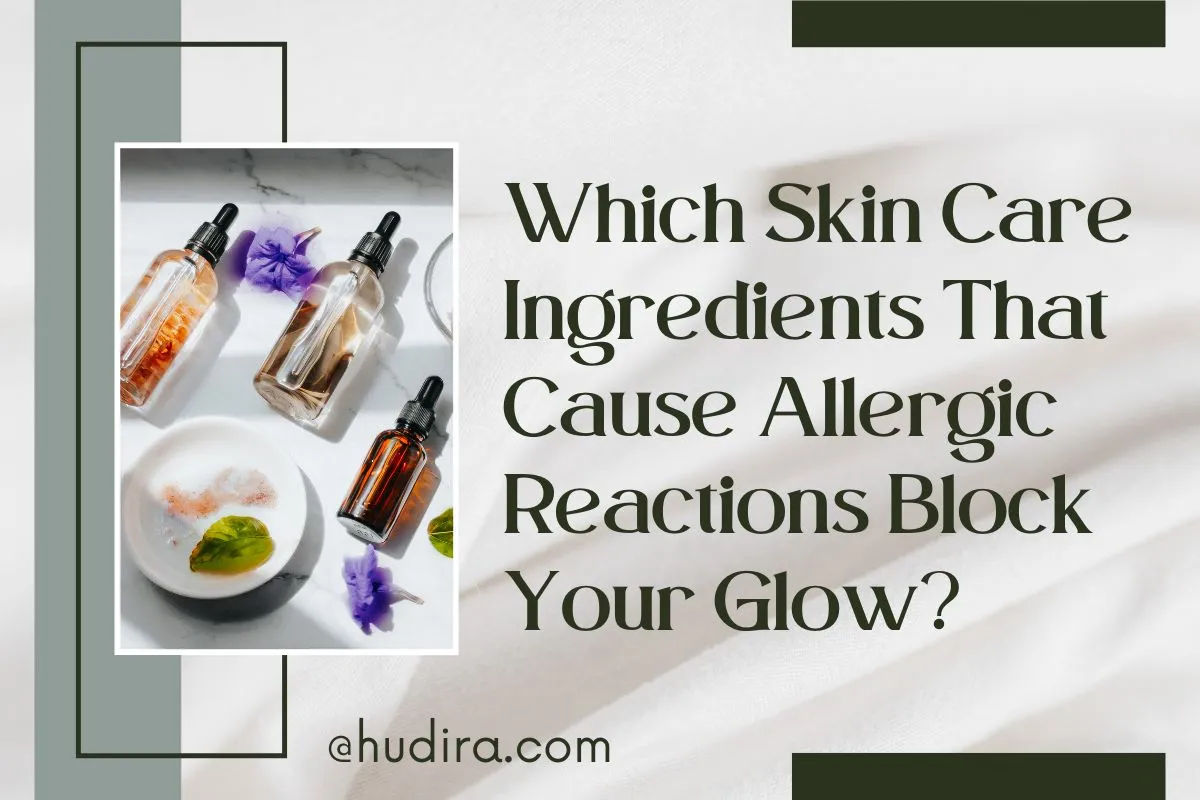No products in the cart.

When choosing herbal or natural skincare, most people expect purity, healing, and nourishment. But did you know that certain skin care ingredients that cause allergic reactions are hiding in even the most “organic” or “natural ingredients” based products? From essential oils to floral extracts, some plant-based compounds may actually trigger redness, itching, rashes, or swelling in sensitive individuals. Understanding these hidden culprits is the first step in protecting your skin and making safe, confident choices.
Here’s where curiosity arises: why do ingredients celebrated for centuries suddenly lead to discomfort for some people today? Is it about the ingredient itself, how it’s processed, or our unique skin biology? In this guide, we’ll uncover natural ingredients that commonly cause allergic reaction to skin care products, reveal which herbal ingredients to avoid, and share how to patch-test for safe usage. If you’ve ever wondered whether your skincare might be silently sabotaging your skin, read on your healthiest glow may depend on it.
Why “Natural” Doesn’t Always Mean “Safe”
It’s easy to believe that herbal or natural ingredients are harmless. After all, they come from plants, flowers, or seeds. But reality is different: even nature’s finest extracts can act as skin care ingredients that cause allergic reactions, especially when used in concentrated skincare formulas. Many plant compounds contain volatile oils or allergenic chemicals that are powerful on the skin.
Common Herbal Ingredients That Trigger Allergies

1. Essential Oils (Tea Tree, Ylang-Ylang, Lemongrass, Clove, Citrus Oils)
Essential oils are among the most popular natural ingredients in creams, toners, and face masks. Yet, they top the list of skin care ingredients that cause allergic reactions. When these oils oxidize, they release compounds that irritate skin, leading to allergic reactions to skin care products such as burning, rashes, or swelling.
Watch out for:
- Tea tree oil
- Citrus oils (lemon, lime, orange, bergamot)
- Ylang-ylang
- Clove oil
- Lemongrass oil
2. Chamomile, Calendula, and Arnica (Asteraceae Family)
While chamomile tea soothes the mind, chamomile in skincare can irritate. Belonging to the Asteraceae family, chamomile, calendula, and arnica are plant-based natural ingredients linked with allergic reaction to skin care products in those sensitive to sesquiterpene lactones.
3. Propolis and Balsam of Peru
Natural resins like propolis (from bees) and balsam of Peru are widely used in herbal ointments and lip balms. Ironically, they are skin care ingredients that cause allergic reactions in many individuals. These sticky substances may lead to eczema-like rashes or lip inflammation.
4. Fragrance Allergens: Linalool, Limonene, Eugenol, Citral, Geraniol
Even when labeled “natural fragrance,” these are potent natural ingredients responsible for allergic reactions to skin care products. Commonly derived from flowers and citrus, they are among the most frequently reported allergens in dermatology patch tests.
5. Aloe Vera (for some sensitive users)
Yes, aloe vera celebrated for healing is also a potential irritant. While rare, some people develop allergic reactions to skin care products with aloe vera, especially when the extract is not properly purified.
How to Identify Skin Care Ingredients That Cause Allergic Reactions
Read INCI labels
Always check the International Nomenclature of Cosmetic Ingredients (INCI) list on product packaging. Allergens like linalool, limonene, or eugenol often hide under scientific names, and spotting them early helps prevent unexpected reactions.
Spot general terms like “Fragrance” or “Parfume”
When you see vague terms such as “fragrance” or “perfume,” remember these can mask dozens of hidden natural ingredients. Many of them are known triggers of allergic reaction to skin care products, even if the product is labeled “natural.”
Check botanical family links
Plant allergies often run across related species. For example, if you’re allergic to ragweed, you may also react to chamomile, calendula, or arnica, since they belong to the same Asteraceae family. Recognizing these links helps avoid flare-ups.
Patch test
Before using a new product, apply a small amount on your inner arm or behind the ear and leave it covered for 48–72 hours. This simple step helps reveal whether it contains skin care ingredients that cause allergic reactions without risking your entire face.
Why Allergic Reactions Happen
An allergic reaction to skin care products occurs when the immune system mistakes harmless plant molecules as threats. This leads to redness, itching, or dermatitis. Repeated exposure to skin care ingredients that cause allergic reactions increases risk.
Tips for Sensitive or Allergy-Prone Skin
- Stick to fragrance-free formulas.
- Use products with shorter ingredient lists.
- Prefer hydrating bases like squalane, oatmeal, or panthenol instead of reactive natural ingredients.
- Track your reactions with a skincare diary.
Patch-Testing: Your Safety Net
Performing a patch test ensures you avoid unexpected allergic reaction to skin care products. Apply a pea-sized amount on your inner arm, cover, and observe for 72 hours. If irritation appears, the product likely contains skin care ingredients that cause allergic reactions for you.
Hudira’s Approach: Gentle Herbal Skincare
At Hudira, we believe in honesty, transparency, and safe beauty. While we love herbal traditions, we carefully select and test natural ingredients to ensure they are safe, soothing, and unlikely to cause allergic reaction to skin care products. Every product carries a clear ingredient list, and we always encourage patch-testing for sensitive skin.
FAQs
Q: What are the most common skin care ingredients that cause allergic reactions?
Essential oils (tea tree, citrus, ylang-ylang), chamomile, calendula, balsam of Peru, and fragrance allergens like linalool.
Q: Can “natural ingredients” be more harmful than synthetic ones?
Yes. While plant-based, some natural ingredients are more allergenic than synthetic stabilizers.
Q: How do I know if I’m having an allergic reaction to skin care products?
Look for signs like redness, itching, burning, or rashes after using a product.
Q: Is patch testing necessary for herbal skincare?
Absolutely. Patch testing prevents unexpected allergic reaction to skin care products from herbal or synthetic sources.
Q: Are Hudira products safe for sensitive skin?
Yes, Hudira uses carefully screened natural ingredients designed to reduce the risk of skin care ingredients that cause allergic reactions.



Add comment